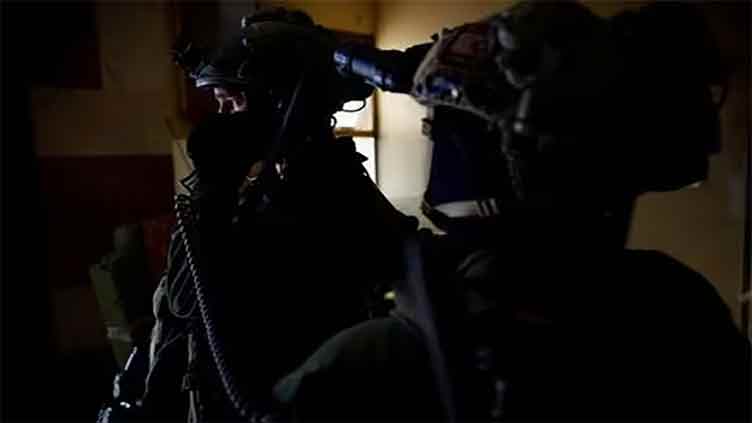Fourteen patients evacuated from besieged Gaza hospital, ministry says

World
Fourteen patients evacuated from besieged Gaza hospital, ministry says
CAIRO/JERUSALEM (Reuters) - Fourteen patients were evacuated from a Gaza hospital that has been raided by Israeli troops, the Gaza health ministry said on Monday, as Israel denied its military operations had stopped the hospital from functioning.
The two sides gave conflicting accounts of the situation at Nasser Hospital in Khan Younis, Gaza's second-largest, with Israel denying an assertion by the Gaza ministry's spokesperson that its forces had detained the hospital director.
The ministry said the evacuated patients, including five who required kidney dialysis and three intensive care cases, were moved from the hospital to others in southern Gaza thanks to efforts by the World Health Organization (WHO).
The ministry later added that 25 medical staff and 136 patients were without electricity, food, water, oxygen or the necessary medical capabilities.
A WHO spokesperson gave no immediate comment. On Sunday, the U.N. agency's Director-General Tedros Adhanom Ghebreyesus said that the hospital was no longer functional, that a WHO team had not been allowed in, and that there were still about 200 patients inside of whom 20 needed to be moved urgently.
Nasser Hospital is the latest health facility to become a theatre of war in the conflict between Israel and Hamas, now in its fifth month. Israel says Hamas, the Islamist group that has run Gaza since 2007, uses hospitals for cover, which it denies.
The war was triggered by a Hamas attack on southern Israel on Oct. 7 in which 1,200 people were killed and 253 taken hostage, according to Israel.
Vowing to destroy Hamas, Israel has responded with an air and ground assault that according to Gaza's tallies has killed more than 29,000 Palestinians and injured more than 69,000. The war has displaced most of the enclave's 2.3 million people and reduced much of it to rubble.
DISPUTED ARREST
The Israeli army has said it had apprehended hundreds of Hamas militants who were hiding in Nasser Hospital, some posing as medical staff, and has released images of weapons it said were found there.
Hamas denies operating out of hospitals and says Israel's allegations serve as a pretext to destroy the healthcare system.
Ashraf Al-Qidra, spokesperson for the Gaza health ministry, told Reuters Israeli forces had detained 70 staff and volunteers at the hospital, including its director Dr Nahed Abu Taeema.
An Israeli army spokesperson denied that Abu Taeema had been detained but gave no immediate comment on 70 other arrests.
"IDF (Israel Defense Forces) troops conducted activities against terror infrastructure and terrorist operatives at the Nasser Hospital," the spokesperson said.
"In addition, the IDF operated in cooperation with the hospital director and the medical team in order to enable the continued functioning of the hospital. The troops also engaged in a dialogue with the director a few days ago."
Reuters attempted to call Abu Taeema, using a telephone number that previously worked. It rang several times, then cut off.
COGAT, an Israeli Defense Ministry liaison agency involved in coordinating aid deliveries to Gaza, said on social media platform X on Monday that Nasser Hospital had remained functional at all times during the Israeli army's raids.
"We facilitated humanitarian aid and supplies to the hospital and coordinated a @UN team to evacuate the patients," COGAT said.
The agency described the Israeli army's actions as "a precise activity against the Hamas terror organization at the Nasser Hospital, with a key objective to ensure that the Nasser hospital continues its operations".
It listed items it said had been delivered to the hospital with its help, though it did not say when the deliveries had taken place.
The items included a tanker carrying 24,500 litres of diesel fuel, supplies of food and drinking water, a replacement generator and medicines donated by the WHO.
Local and U.N. health officials previously said the hospital was losing the ability to function because of fighting within its premises, shortages of fuel and a dearth of essential supplies.


